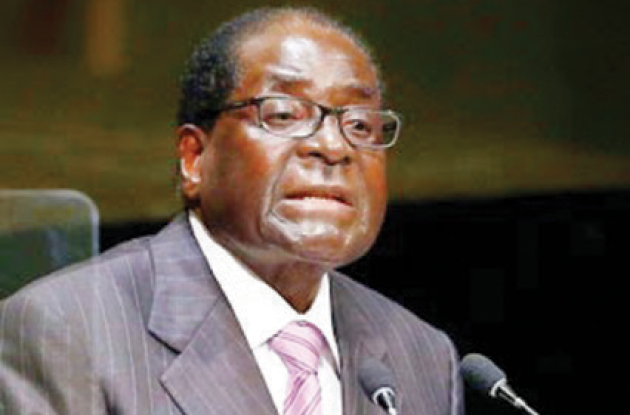EDITORIAL COMMENT: Zim, SA must consolidate economic relations

President Mugabe hosts his South African counterpart, Jacob Zuma, this week for high level bilateral discussions in Harare.
The two leaders and their teams of ministers meet in the inaugural session of the Bi-National Commission which seeks to promote cooperation in the various sectors of Government and to facilitate contact between the public and private sectors of the two countries.
President Zuma, leading a delegation of eight Cabinet ministers, is expected to fly in on Wednesday ahead of the official opening of the session on Thursday. But work on the BNC started yesterday with a meeting of senior officials at which they were expected to discuss a range of issues of mutual concern, among them tourism, trade investment, energy, health and water.
The BNC is indeed a superior forum to take Zimbabwe’s already solid bilateral relations with South Africa to a higher level.
Bilateral relations between Harare and Tshwane were formalised when South Africa gained freedom from apartheid in 1994. The Joint Commission for Co-operation between them was established a year later, and the Joint Permanent Commission on Defence and Security was set up in 2005. An agreement to establish the BNC was signed during President Mugabe’s State visit to South Africa in April last year.
We warmly welcome President Zuma and his delegation. We look forward to a successful interaction that will result in the strengthening of the excellent economic ties between our two countries.
Zimbabwe and South Africa are one, and the strong economic ties we see today have their roots in history and geography.
South Africa is Zimbabwe’s biggest trading partner. Last year the two countries conducted business worth US$4,2 billion. Products and services traded mirror the full range of their economies. Scores of South African companies do business here, while others have branches here and vice versa. Between 2003 and last year South Africa invested about R20 billion in Zimbabwe’s mining, agriculture, banking and retail sectors.
We have to point out that the relationship between the two countries goes beyond trade and investment. Culture and politics are key factors.
Many communities on either side, particularly in Masvingo and Matabeleland South provinces and South Africa’s northern region are one culturally. We have people who speak similar languages on both sides of the Limpopo River —Shangaan, Xhosa and Venda. These peoples, and many more who are resident further away from our common border, have intermarried.
Migration between the two countries is huge. It is not an overstatement to highlight that the largest population of Zimbabweans in any country apart from theirs is resident in South Africa.
In terms of politics, the ruling parties of both countries — Zanu-PF and the African National Congress — initiated their co-operation when prosecuting their wars of liberation in the 1970s to the early 1990s. Zapu’s military wing, Zipra, was very close to ANC’s Umkhonto Wesizwe and some of their cadres trained together and campaigned together in areas like Hwange.
South Africa gave Zimbabwe strong support, particularly between 2000 and 2009 when the West sought to bring President Mugabe’s government to its knees through illegal economic sanctions. South Africa, then under Presidents Thabo Mbeki and later Kgalema Motlanthe refused to impose sanctions on Zimbabwe arguing not only that there was no basis whatsoever for such action but also that Zimbabwe’s collapse would cause untold social, economic and political implications on their country. President Zuma took the position of his predecessors from 2009.
The people of Zimbabwe have no words to describe the gratitude they have for South Africa’s support in that respect.
Zimbabwe is emerging from its worst economic phase since Independence in 1980 and counts on the support of South Africa to be able to put its economy back on the rails. We, thus, call upon our neighbours to seize the multiple opportunities that are available in an economy that is rebuilding. Greater investment will help create more jobs locally, widen the tax base and boost the recovery and growth of the economy in a more holistic sense.
Given that Zimbabwe’s economy is smaller compared to that of South Africa, we tend to import more from our wealthier neighbour than we export.
For example, South Africa exported goods and services worth R25,6 billion and imported R4,3 billion worth of the same last year. We imported basically every item in the food basket as well as smaller and less important ones like tooth picks and so on. This is in addition to larger pieces of equipment and machinery that we traditionally buy from down south.
The trade deficit has been growing faster over the past decade of Zimbabwe’s economic challenges. The extent to which it has grown has encouraged our government to institute measures to narrow it. This includes promoting investment on the local market and consumption of locally manufactured products. Statutory Instrument 64 that advances the latter has already gone a long way in narrowing the trade deficit.
Therefore, as our leaders meet this week, we look forward to the consolidation of mutually beneficial economic relations between our two friendly countries.












Comments